Introduction:Honey Bee Nude
When you listen the time period “honey bee nude,” you might think about something absolutely unique from what it in reality represents.Inside the world of beekeeping, “nude” can from time to time seek advice from the simplicity and purity of beekeeping practices that target maintaining the fitness of the hive without excessive interference.
This concept of “nude” or natural beekeeping has received reputation, specifically amongst individuals who recognize the position of bees in our environment and are searching for to use bee products of their most herbal form. In this text, we will discover the charming world of honey bees, the significance of the queen bee honey, and the role of beekeepers.
Honey Bee :
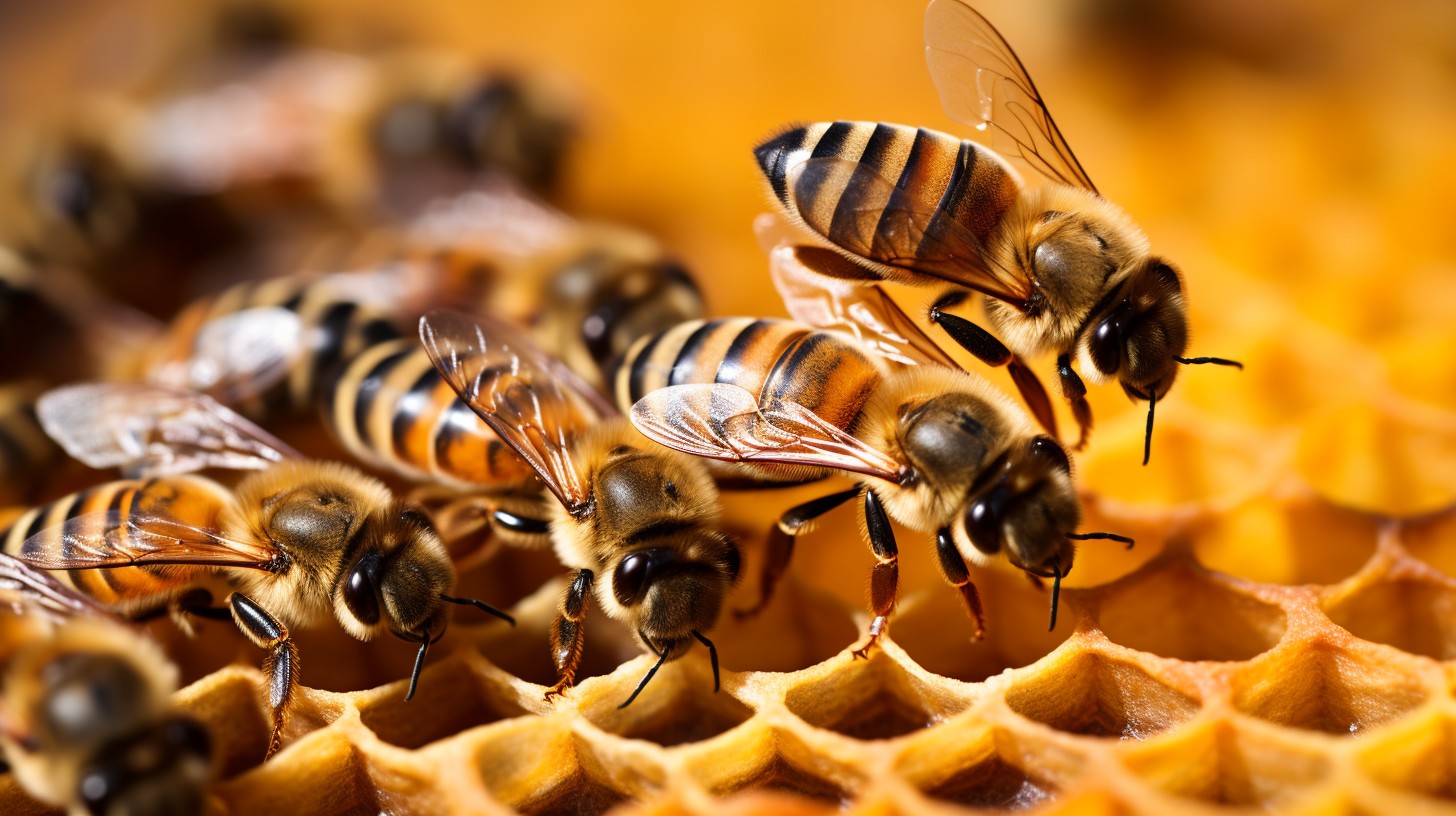 The honey bee, often seen as nature’s tireless employee, performs a crucial position in pollinating flora. with out these bees, the kind of culmination, greens, and nuts we revel in might notably lower. This excellent creature, every now and then visible in its “honey bee nude” shape without any hive or honeycomb protecting, is a reminder of nature’s simplicity and complexity.
The honey bee, often seen as nature’s tireless employee, performs a crucial position in pollinating flora. with out these bees, the kind of culmination, greens, and nuts we revel in might notably lower. This excellent creature, every now and then visible in its “honey bee nude” shape without any hive or honeycomb protecting, is a reminder of nature’s simplicity and complexity.
The Role Of The Queen Bee in a Honey Bee Colony
The queen bee is the coronary heart of the hive. She is the only reproductive female in the colony, and her number one function is to put eggs, which she does tirelessly all through her existence. A healthy queen can lay up to 2,000 eggs consistent with day for the duration of top season, making sure the continuity and electricity of the hive. The first-class of queen bee honey produced with the aid of the colony is immediately related to her health and energy. Her position is critical; without a robust queen, the hive might fail.
Beekeepers: Guardians of the Hive
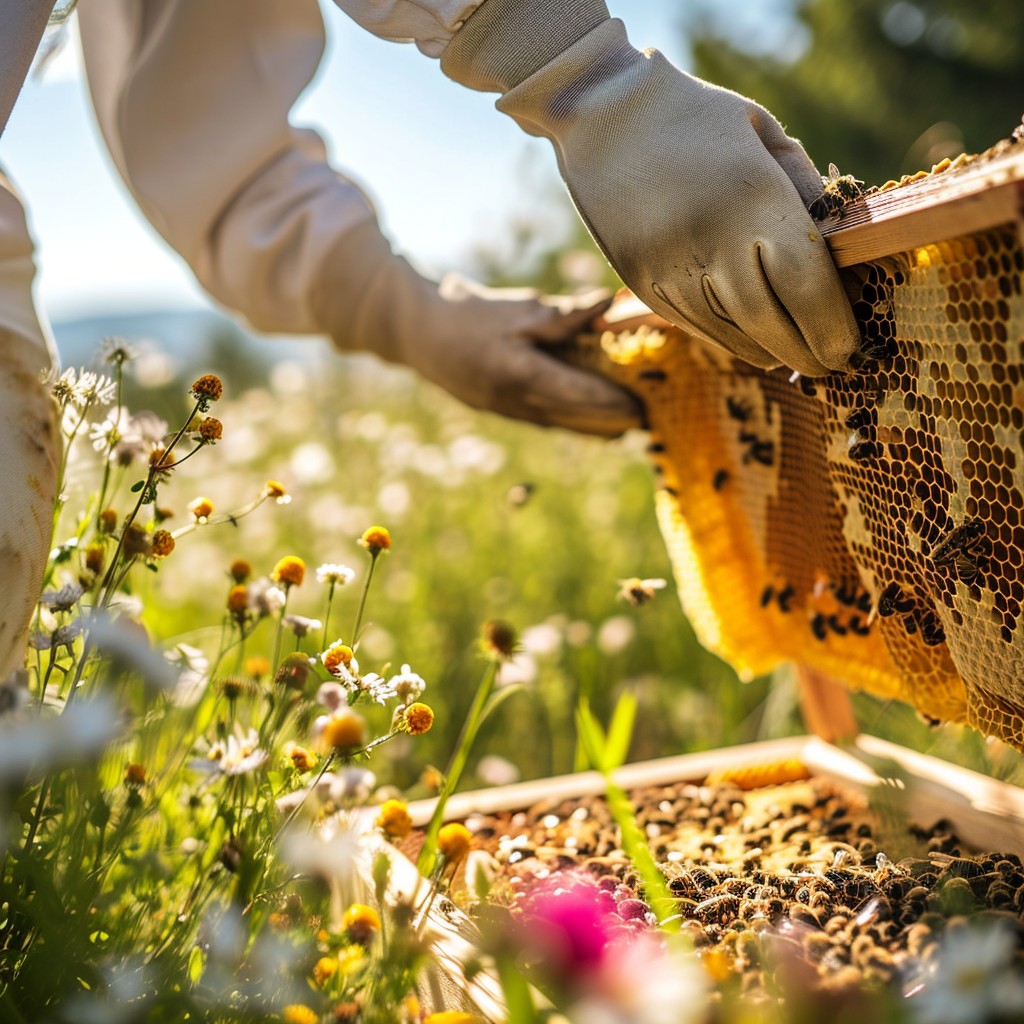
Beekeepers play a important function in maintaining the fitness of the queen bee and, with the aid of extension, the whole colony. They ensure that the queen has the best situations to thrive, which includes imparting ample food, protecting the hive from pests and sicknesses, and on occasion even changing the queen while she becomes less efficient.
Beekeepers are essential to the survival of honey bees. They make certain that the hives are well-maintained, shield the bees from sicknesses and pests, and aid the queen bee’s productivity. The position of beekeepers is essential; they may be the guardians of these essential bugs, ensuring that honey bees can continue their paintings in pollination, which in turn supports our agricultural system.
The Significance of Supporting Beekeepers

Supporting beekeepers is important for the survival of honey bees and the manufacturing of honey and different bee products. Through purchasing honey, beeswax, and related products from local beekeepers, customers can assist maintain the beekeeping enterprise and ensure that bees continue to play their vital role in pollinating plants and keeping biodiversity.
Moreover, while you buy merchandise from organizations just like the bare Bee, you’re indirectly helping sustainable beekeeping practices. Lots of those agencies supply their honey and beeswax from beekeepers who adhere to herbal and humane practices, ensuring that the bees are handled with care and appreciate.
Beekeeping: A sensitive balance
Beekeeping, particularly when performed in a “nude” or herbal way, requires a sensitive balance. Beekeepers have to be attuned to the desires of the bees, making sure that they’ve get admission to to the resources they need to produce honey and keep the hive. This indicates planting flowers that provide nectar and pollen, keeping a clean and safe hive environment, and avoiding using dangerous chemical compounds.
Beekeepers want to be cautious about numerous chemicals
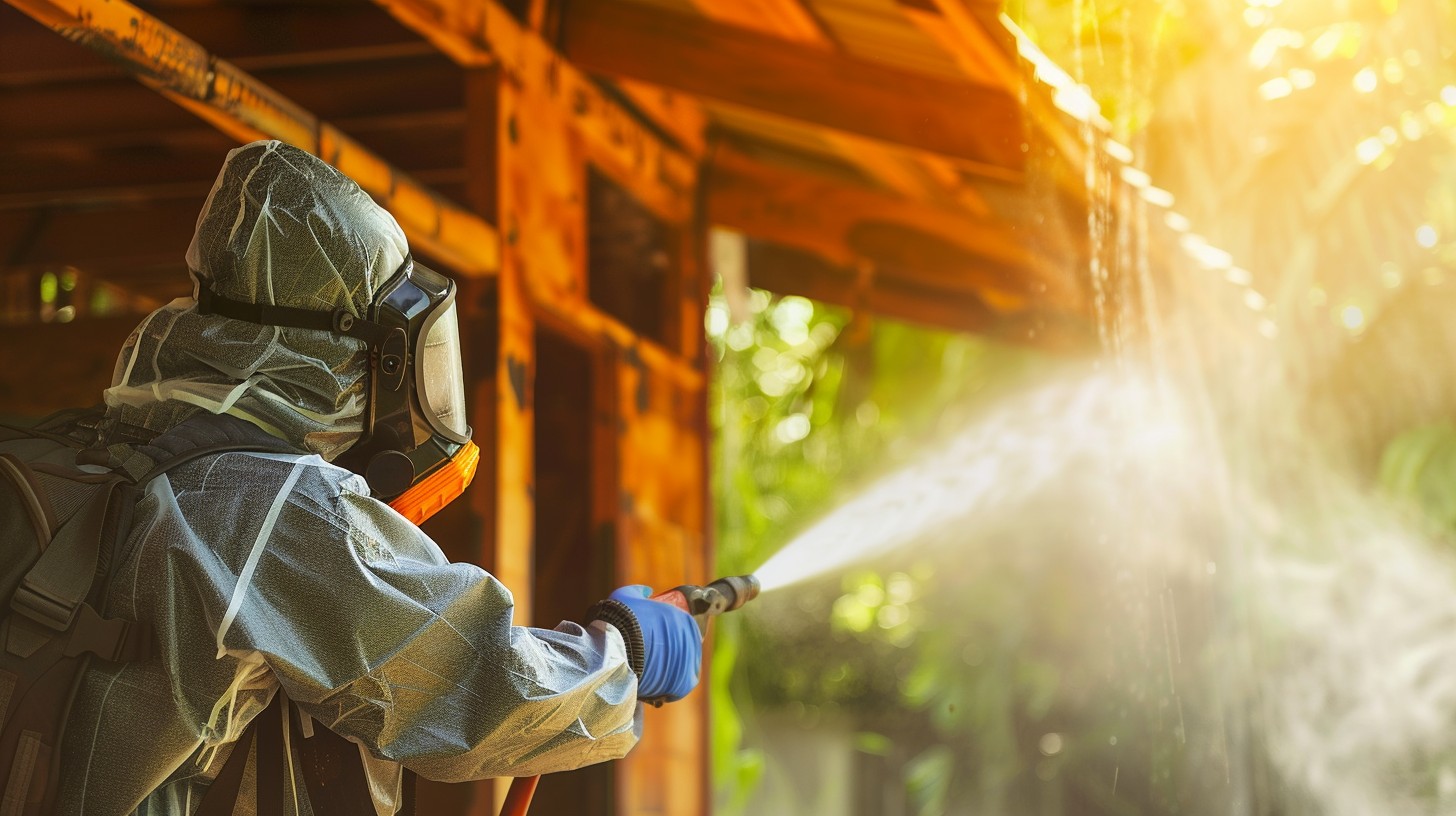 Beekeepers want to be cautious about numerous chemicals that may be harmful to bees. Here are some of the maximum enormous ones:
Beekeepers want to be cautious about numerous chemicals that may be harmful to bees. Here are some of the maximum enormous ones:
1. Neonicotinoids
Neonicotinoids are a class of pesticides widely utilized in agriculture. They may be systemic, meaning they may be absorbed by way of plant life and can be found in pollen and nectar, which bees accumulates.
2. Pyrethroids
Pyrethroids are any other institution of insecticides that, at the same time as effective towards pests, are exceptionally poisonous to bees. These chemical substances can cause disorientation, paralysis, and loss of life in bees. Beekeepers have to keep away from the use of pyrethroids near hives and all through bloom periods whilst bees are actively foraging.
3. Organophosphates
Organophosphates are a set of chemical compounds used in insecticides and insecticides. They can be extremely harmful to bees, causing neurological harm that could cause disorientation, decreased foraging ability, and loss of life. Common organophosphates encompass malathion and chlorpyrifos.
4. Fungicides
Even as fungicides are designed to goal fungal diseases, a few can still negatively have an effect on bees. as an example, fungicides can disrupt bees’ digestion and decrease the effectiveness of their immune systems, making them greater liable to illnesses.
5. Herbicides
Herbicides, which includes glyphosate, are not immediately poisonous to bees, but they are able to lessen the supply of plant life and different meals sources with the aid of killing off flora. This reduction in forage can weaken bee colonies through the years.
6. Acaricides
Acaricides are chemical substances used to manipulate mites, which includes the Varroa mite, a great pest for honey bee colonies. Whilst some acaricides are important for controlling mite infestations, mistaken use or overuse can harm bees. Beekeepers must cautiously comply with application commands and use only those merchandise approved for use in beehives.
7. Insect increase Regulators (IGRs)
IGRs are chemical substances that interfere with the development of insects. this will weaken the hive over the years.
Best Practices for Beekeepers
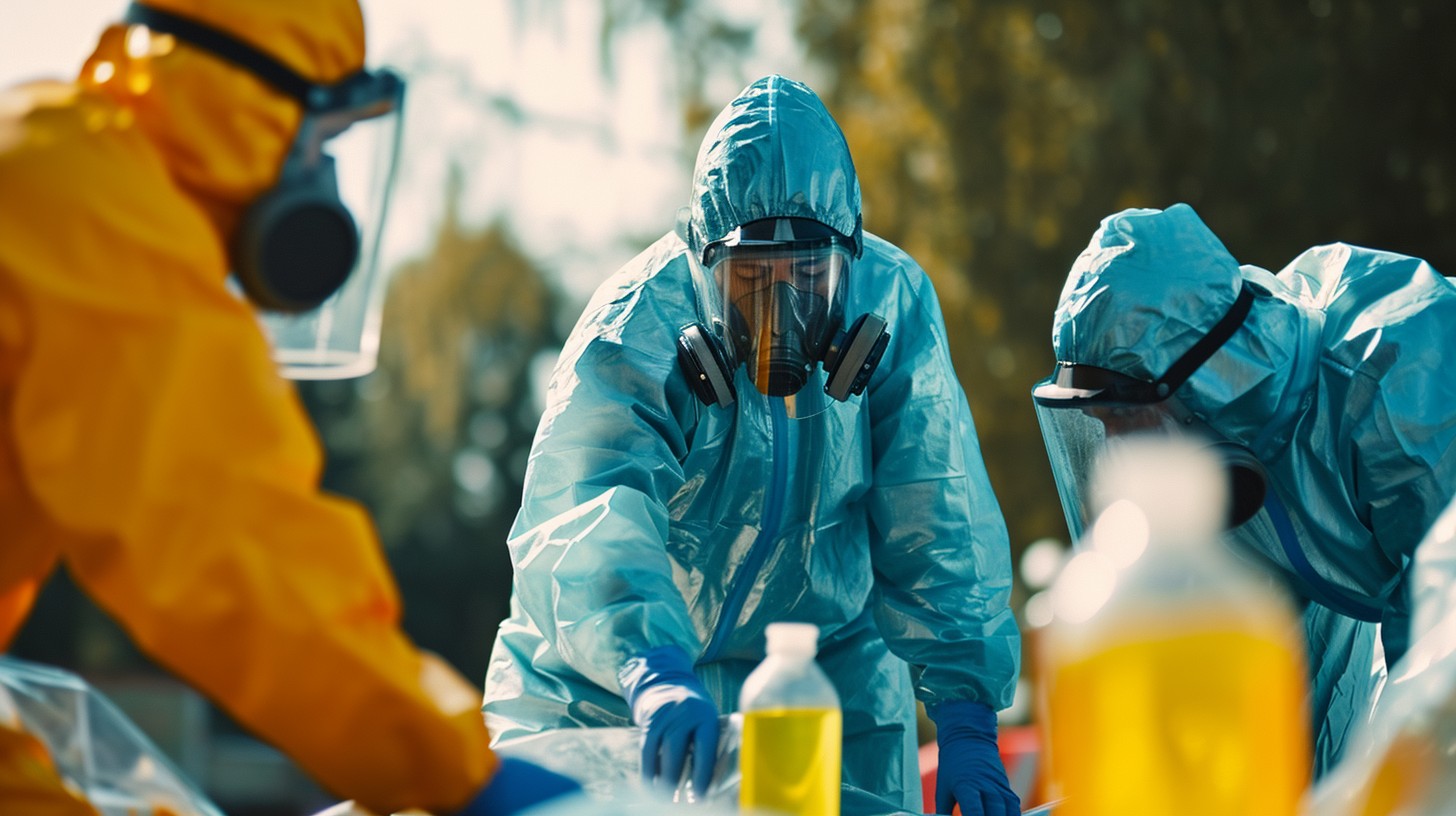 Incorporated Pest management (IPM): Use IPM techniques to decrease the want for chemical treatments. This includes monitoring mite levels, the use of mechanical controls, and choosing resistant bee lines.
Incorporated Pest management (IPM): Use IPM techniques to decrease the want for chemical treatments. This includes monitoring mite levels, the use of mechanical controls, and choosing resistant bee lines.
Read Labels carefully: best use chemicals which are in particular authorised to be used in beekeeping, and usually observe label commands to avoid overdosing.
Avoid Spraying at some stage in Foraging: apply any essential chemical substances at night or when bees aren’t actively foraging to limit exposure.
Use natural alternatives: where possible, use organic or herbal remedies which can be much less dangerous to bees and different beneficial bugs.
By means of being mindful of those chemical substances and following pleasant practices, beekeepers can help shield their colonies from damage and make certain the health and productivity of their bees.
The idea of “nude” beekeeping aligns with a broader movement towards natural and sustainable farming practices. By using minimizing human intervention and allowing the bees to comply with their natural behaviors, beekeepers can produce honey and other bee products that are pure, unadulterated, and wealthy in vitamins.
Conclusion:
The honey bee, frequently visible in its “honey bee nude” kingdom because it flits from flower to flower, is greater than just a producer of honey. With the queen bee main the hive and beekeepers caring for their nicely-being, honey bees are integral to our environment. With the aid of information their significance, we can better recognize the sensitive stability they assist hold in nature.
The world of honey bees, beekeeping, and herbal beauty merchandise is deeply interconnected. From the crucial role of the queen bee honey in keeping the hive to the nourishing homes of honey and beeswax in skincare, bees play an essential function in our lives.
Whether you’re a beekeeper, a lover of herbal beauty products, or sincerely someone who appreciates the importance of bees in our environment, there’s no denying the impact those small, industrious creatures have on our global.

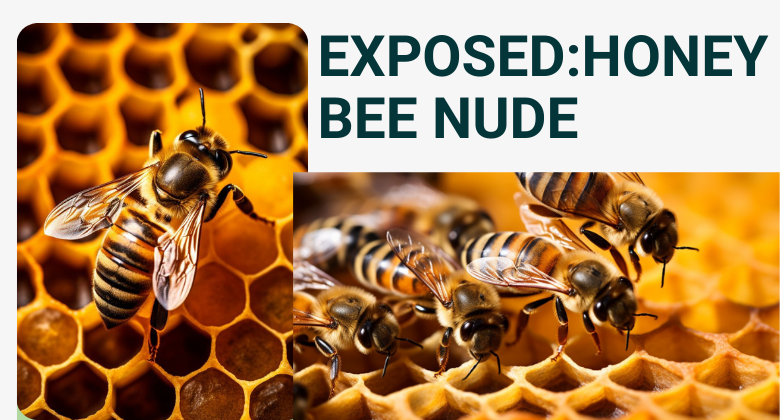
1 thought on “Exposed :Honey Bee Nude: Information The Excitement Around Beekeeping”